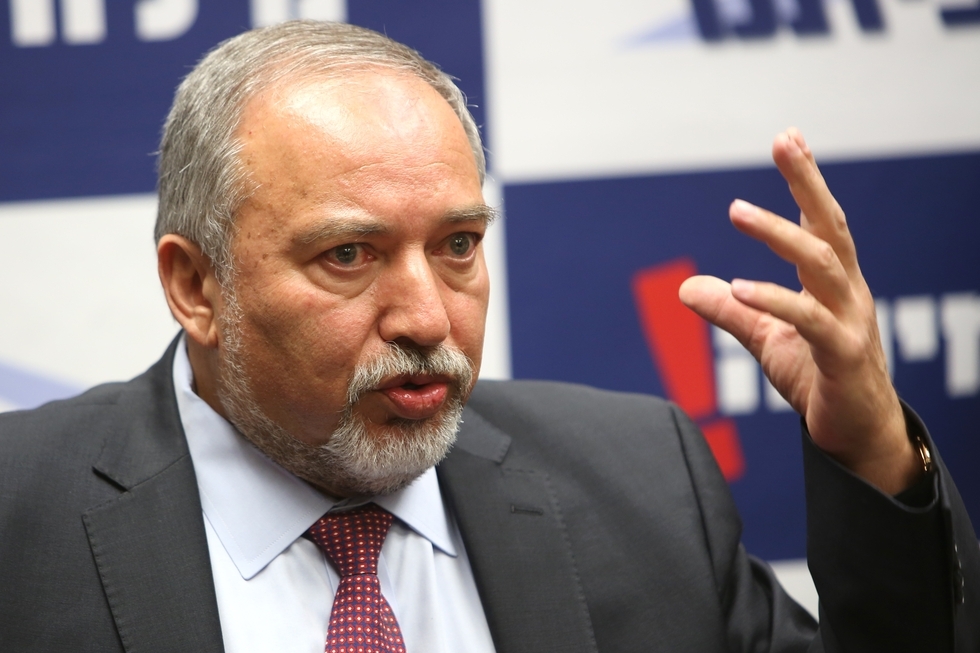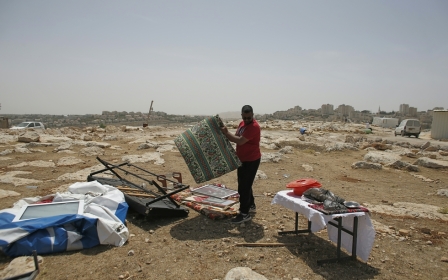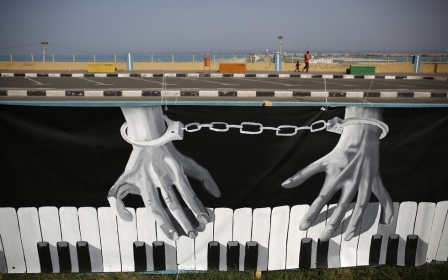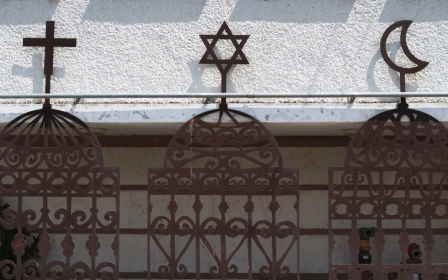The Israeli government’s anti-democratic march

Although Israeli leaders declare repeatedly that “Israel is the only democracy in the Middle East,” it seems very doubtful that naming a politician like Avigdor Lieberman as minister of defence, the second most important position in the government, would be tolerated in a state governed according to basic democratic values.
Lieberman leads a party the main agenda of which is incitement against Arab citizens of Israel, who comprise 20 percent of the citizenry. His campaign slogan was “No citizenship without loyalty,” demanding that Arab citizens declare loyalty to Israel as a “Jewish and democratic” state and, if they refused, that their right to citizenship be voided.
In the framework of his political programme, if such it can be termed, he sought to adjust the physical boundaries of Israel in such a way that many of its Arab citizens would lose their Israeli citizenship. During the most recent round of elections, he announced that, with respect to Arab citizens, “Someone who is with us must accept everything, and as to someone who is against us, there’s nothing to be done but pick up an axe and chop off his head.”
The fact that a politician with this sort of racist worldview toward a native-born national minority stands to fill such a senior government position is bad enough in and of itself. In addition, however, it highlights the moral deterioration of Israel in a clearly anti-democratic direction. What are the political conditions that enable these grave trends that presage, for all of us, continued movement toward extremism and violence in Israel?
In today’s political map of Israel, there is no steadfast democratic camp offering an alternative to the waves of anti-democratic incitement. The “Israeli left” in general is not functioning as a challenge to the rightist government headed by Benjamin Netanyahu, but rather is being dragged along in the wake of this lexicon of incitement. The left abstains from saying anything explicit against continued military rule in the West Bank and the ongoing siege of Gaza, a policy that involves the most severe violations of the rights of Palestinians.
Thus, for example, the Zionist Camp (formerly the Labor Party), which aspired to replace Benjamin Netanyahu in the last round of elections, did not respond at all to the incitement he broadcast on election day itself about “Arabs going in droves by bus to the polls”. Moreover, during the campaign by Isaac (“Buji”) Herzog, the Zionist Camp’s candidate to replace Netanyahu, Israeli television broadcast a propaganda video in which a man who had served in the Israeli army with Herzog, Yuval Albashan, says shamelessly that “Buji saw Arabs through the crosshairs.” So the man who is supposed to lead the peace camp adopts an inciting right-wing approach implying that a good leader is one who makes war on “the Arabs,” any Arabs. In these circumstances, the Joint List, combining all the Arab parties, naturally does not view the “Zionist Camp” as an appropriate partner.
Another clear example of the Israeli government’s anti-democratic march, an example that was ignored by the ostensibly left-wing opposition, was the government’s move to criminalise the Islamic Movement in Israel six months ago. The Islamic Movement was one of the largest organisations in Israel, with lawfully registered activity in the realms of welfare, education, media, etc.
The then defence minister, Moshe Yaalon, signed a laconic closure order against the movement and its institutions, relying on a colonialist emergency defence regulation from the era of the British mandate over historical Palestine. Note, too, that there were no indictments handed down and no hearing allowed for the movement’s activists prior to the closure of their offices. This was another case in which the Jewish Israeli left, all of it, and the Zionist Camp specifically, did not dare to challenge the government’s anti-democratic decision against the Arab public.
From a political standpoint, the entire Israeli left dares not push for an end to the Israeli-Palestinian conflict based on UN resolutions, international law, and recognition of the human rights of the Palestinian people. There is not a single Jewish member of Knesset who will say unequivocally and out loud that the Palestinian right of return is an inseparable component of reconciliation between the Jewish people and the Palestinian people. Moreover, very few left-wing Israeli leaders will declare that all the settlements beyond the Green Line are illegal under international law. Not in vain do Palestinian activists say bitterly that “there is no Left in Israel.” The Jewish left presents no humanistic alternative to the policies of the right wing concerning the Israeli-Palestinian conflict.
No less noteworthy and important is that the left in Israel has failed in its attempts to broaden its ranks among Jews. Election data over several election cycles show that in the lowest social strata in the Jewish public – mainly Mizrahi Jews and the communities of immigrants from Ethiopia and the former Soviet Union – few indeed are the votes for the Labor Party, Meretz and Hadash.
The reasons for this are diverse, but this at least is absolutely clear: most of the left-wing parties’ leadership in the Knesset belong to the Ashkenazi elite, which has been unduly privileged since the founding of the state and hence finds itself in a significantly better socioeconomic position relative to the less privileged groups mentioned above. The Jewish public from the less privileged classes feels, with ample justification, alienated and distanced from the left wing in its present elitist incarnation.
Thus, given the anti-democratic steps being taken by the Israeli government and the very grave trends evident in Israeli society, there is no camp of any significance offering an appropriate democratic alternative. The Israeli left has lost both the Arab-Palestinian public who are citizens of Israel, a group which should have been its strategic partner for a democratic policy and a courageous peace process with the Palestinian people; and likewise it has lost the underclass in Israeli Jewish society, without the support of large parts of which there cannot be any process toward social justice and Jewish-Arab cooperation.
It is hard to predict what will actually happen when Lieberman takes over as defence minister. It is worth remembering that outgoing defence minister Moshe Yaalon led the ministry in 2014 when the Israeli army staged a very harsh attack on the Gaza Strip (“Operation Protective Edge”), which caused the deaths of some 520 Palestinian children in Gaza. So that even before Lieberman’s appointment, Israel did not hestitate to use criminal means against Palestinians.
Yet the appointment as defence minister of a man the core of whose agenda is incitement against Arabs for being Arabs, demonstrates that “the only democracy in the Middle East” is moving rapidly in the direction of oppression and the violation of human rights. If no really determined, popular democratic left springs up in Israel to offer an uncompromising alternative to the Netanyahu government, the continuation of its racist policies will lead to further bloodshed.
- Tom Mehager is a Mizrahi Jewish activist based in Haifa.
The views expressed in this article belong to the author and do not necessarily reflect the editorial policy of Middle East Eye.
Photo: Israeli hardline MP and head of Yisrael Beiteinu party Avigdor Lieberman talks to the press during a meeting in Jerusalem on 23 May, 2016 (AFP).
Middle East Eye propose une couverture et une analyse indépendantes et incomparables du Moyen-Orient, de l’Afrique du Nord et d’autres régions du monde. Pour en savoir plus sur la reprise de ce contenu et les frais qui s’appliquent, veuillez remplir ce formulaire [en anglais]. Pour en savoir plus sur MEE, cliquez ici [en anglais].





